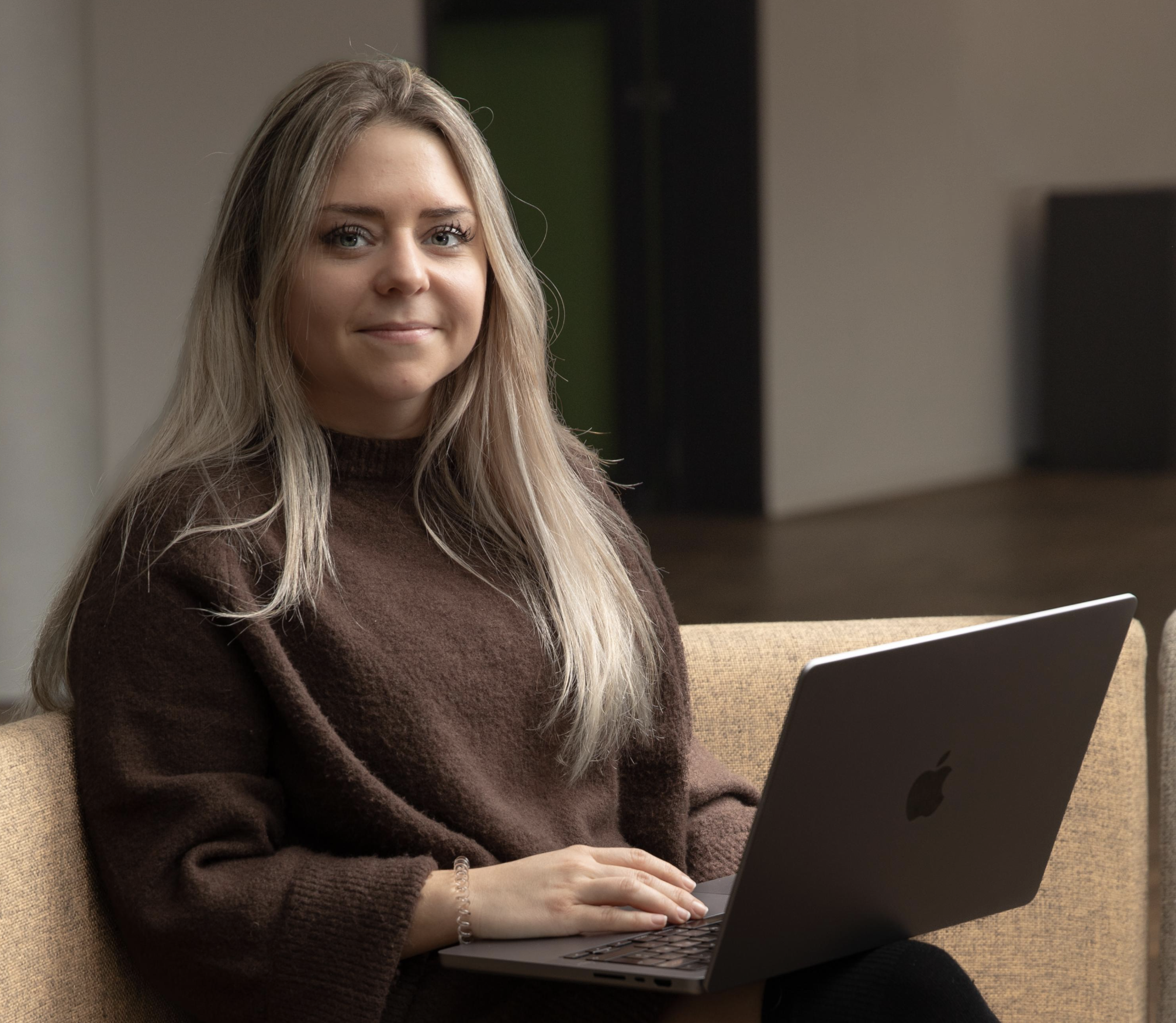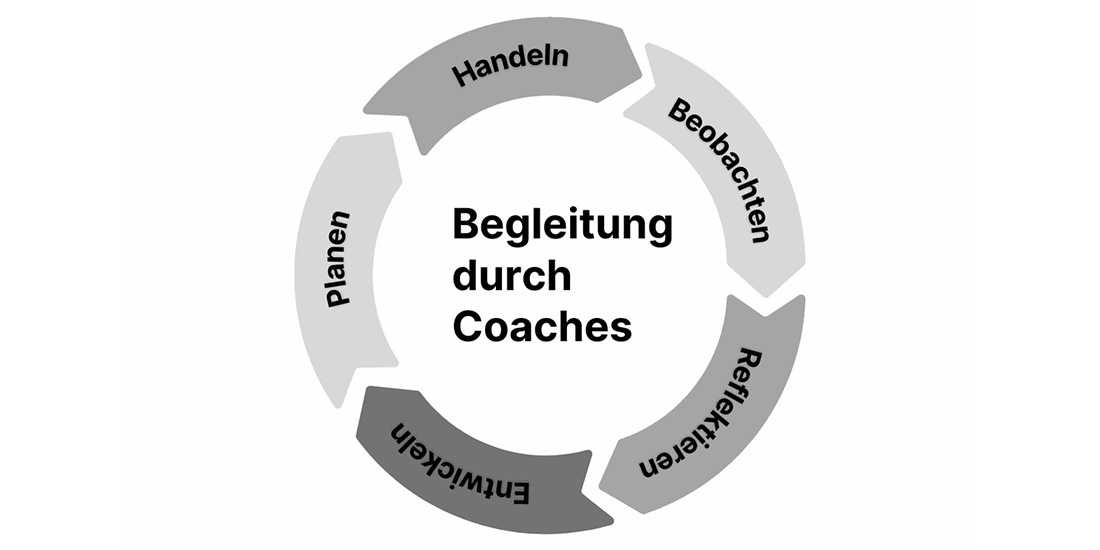How You Study With Us
In the Bachelor's program in Data Science & Artificial Intelligence, we say: goodbye to lectures, welcome to flexible, networked, and practice-oriented learning!
The learning concept of the Data Science & Artificial Intelligence program focuses on the ability for lifelong learning. This means you'll be empowered to learn quickly and according to your needs – even after your studies. This is particularly important in a field like Data Science, where new developments occur almost daily.
To engage in lifelong learning and succeed in a changing work environment, you should, among other things...
- learn how to study independently
- ask relevant questions and strategically develop your own knowledge
- build new skills that make your work non-automatable
Knowledge alone is not enough; you must also be able to apply it. In our study program, you can therefore work on one or two challenges or projects per semester – up to a third of your studies – addressing applied questions in a team. What you learn in the modules is thus connected and applied in a realistic way, just as it will be in your professional life. In challenges and projects, you work on:
- questions from industry partners
- questions from faculty, tailored to be realistic and appropriate for your level of study
- your own questions, from your job, hobby, or passion
Flexible learning is emphasized in the Data Science & Artificial Intelligence program:
- There are no fixed semester plans that everyone needs to adhere to, but a flexible module selection (the only mandatory module is the Bachelor's thesis); most modules are offered every semester. You can individually design your content focus.
- You choose your learning time, place, and pace yourself. Thanks to a digital learning platform with learning materials, information, and forums, you can learn flexibly.
- There are no regular lectures, but workshops and optional contact hours where you can interact weekly with faculty and coaches.
- In general, you have few mandatory appointments. Our students come to campus two days per week on average: to meet up with fellow students and faculty, for contact hours, and for workshops.
- For a large part, you will collaborate with other students to complete assignments, to regularly learn with and from each other. For that matter, suitable learning spaces and open co-working zones, as well as a digital learning platform, are available to you.
«All students can learn how and where they want, whether alone or with other students. Very little is prescribed.»
What you would otherwise have to acquire independently and laboriously at the beginning of your career is part of our program: Our experienced coaches personally support you in developing self-competence, social competence, leadership, and career planning. Has everything turned topsy-turvy again? Our coaches are also happy to support you with challenges.
The collaboration between students and coaches is based on appreciation, reliability, and transparency. The content discussed is treated confidentially by both sides. Collaboration with coaches takes place primarily in the form of individual coaching. Independent exploration of selected topics and exchanges with other students (peers) complement the coaching.
- As a Data Scientist, you always work with specialists from other disciplines, which requires the right skills. Our learning concept enables the acquisition of future skills: Whether communication and collaboration, creativity, or critical thinking – in individual modules as well as in large team projects, you'll find various opportunities to further develop these important competencies
- In challenges and projects, you learn to think about and understand other fields and domains, what relevant aspects are, and how you can create the greatest benefit from the data.
«I appreciate: independent learning, teamwork has a high priority, you can decide which area to specialize in. Plus, there are cool events! :)»
Spain, Poland, Sweden, France... Exchange students from all over Europe enrich our daily study life. The Data Science & Artificial Intelligence program is very popular among exchange students due to the module offerings, study format, and social exchange.
As a Data Science & Artificial Intelligence student, you naturally also have the opportunity to study for one or two semesters at one of our partner universities. You can get more information from the International Office.







